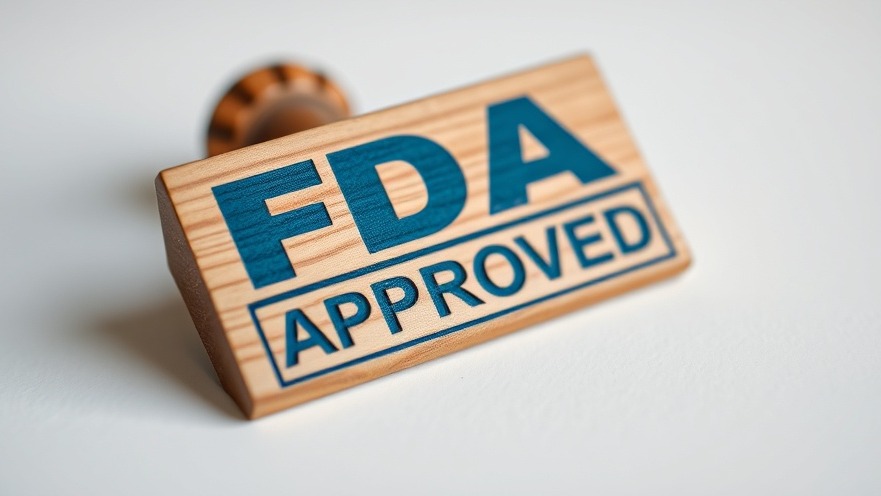
FDA's Historic Approval of Zongertinib: A Game-Changer for Lung Cancer Treatment
In a groundbreaking move for oncology, the FDA has granted accelerated approval to zongertinib, a targeted therapy specifically for adults suffering from unresectable or metastatic nonsquamous non-small cell lung cancer (NSCLC) bearing HER2 gene mutations. This is significant, as lung cancer remains one of the leading causes of cancer mortality, particularly in cases where treatment options are incredibly limited.
A New Hope for Patients
Zongertinib, developed by Boehringer Ingelheim Pharmaceuticals, is celebrated as the first orally administered treatment for this population. Patients with HER2 (ERBB2)-mutant NSCLC have historically encountered dire prognoses, and prior therapies often left them with few if any, effective options. The approval holds great promise, offering a targeted approach that aims to improve responsiveness in a previously underserved group. By assessing the HER2 mutations through the Oncomine DX Target Test, physicians can now better identify candidates who will likely benefit from zongertinib.
Breaking Down the Research: What the Trials Showed
The pivotal evidence supporting this approval stems from the phase 1b Beamion LUNG-1 trial, involving 71 patients who had endured failure on standard platinum-based chemotherapy yet had not undergone HER2-targeted therapies previously. Remarkably, 75% of participants exhibited an objective response to the treatment, with nearly two-thirds experiencing a duration of response that extended at least six months. For patients who had received prior HER2-targeted therapies, those figures were notably lower but still offered valuable connection points—44% displayed an objective response, validating the targeted approach.
What This Means for Health and Wellness Trends
The emergence of zongertinib aligns with evolving medical trends that prioritize personalized medicine and targeted therapies, revolutionizing the landscape of cancer treatments. As patients become more engaged and informed about their health options, they are likely to seek out these advancements. Access to tailored treatments such as zongertinib may change patient outcomes significantly and align with overarching themes in health and wellness promoting proactive engagement.
Looking Ahead: The Future of Lung Cancer Treatments
As zongertinib becomes available, what does the future hold? The growing focus on research and development in targeted therapies like this underscores the importance of continued innovation in oncology. As more treatments come to market, data from real-world applications of zongertinib will provide essential insights into its efficacy and safety profile.
Managing Side Effects: What to Expect
With every innovative treatment comes the responsibility to monitor for potential adverse effects. In the case of zongertinib, while 5% of patients required dose adjustments and only 2.9% discontinued the treatment due to side effects, most adverse reactions have been deemed manageable. Healthcare providers will emphasize proactive monitoring, especially given concerns around hepatotoxicity and heart function, which adds another dimension to discussions on the therapy's risk-versus-benefit ratio.
Taking Action: Embrace New Opportunities in Oncology
This approval signifies not only a medical milestone but emphasizes the incredible strides being made to enhance the quality of life for cancer patients. As the momentum builds around these groundbreaking treatments, there is no doubt that patients, healthcare providers, and researchers alike should remain engaged, informed, and ready to advocate for advancements in care.
Call to Action: For those affected by lung cancer, or for loved ones looking for the latest treatment options, now is the time to engage with health professionals about zongertinib and its impact on treatment paths. Stay informed about how new research like this can shape patient choices and expectations moving forward.
 Add Row
Add Row  Add
Add 




Write A Comment